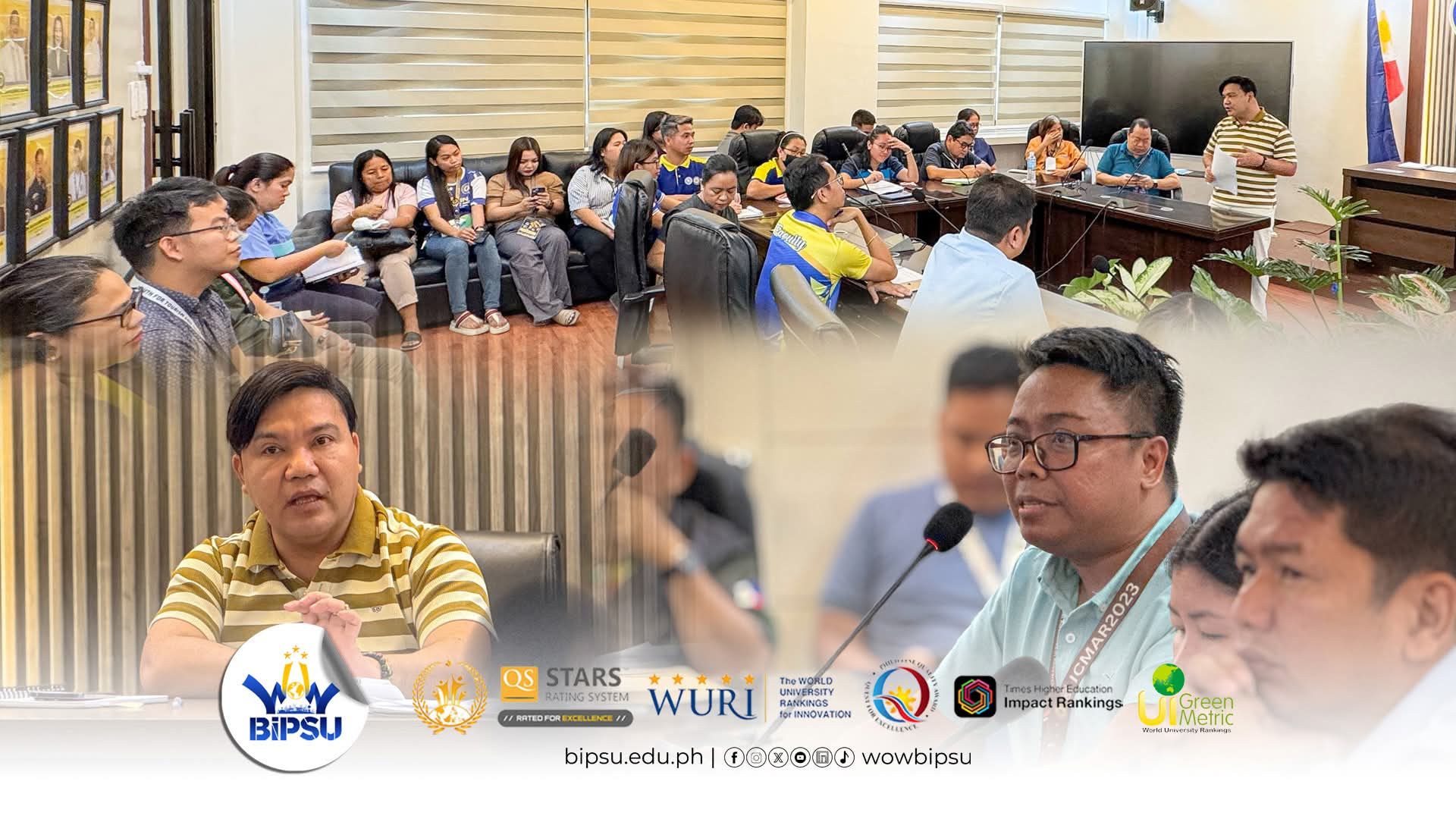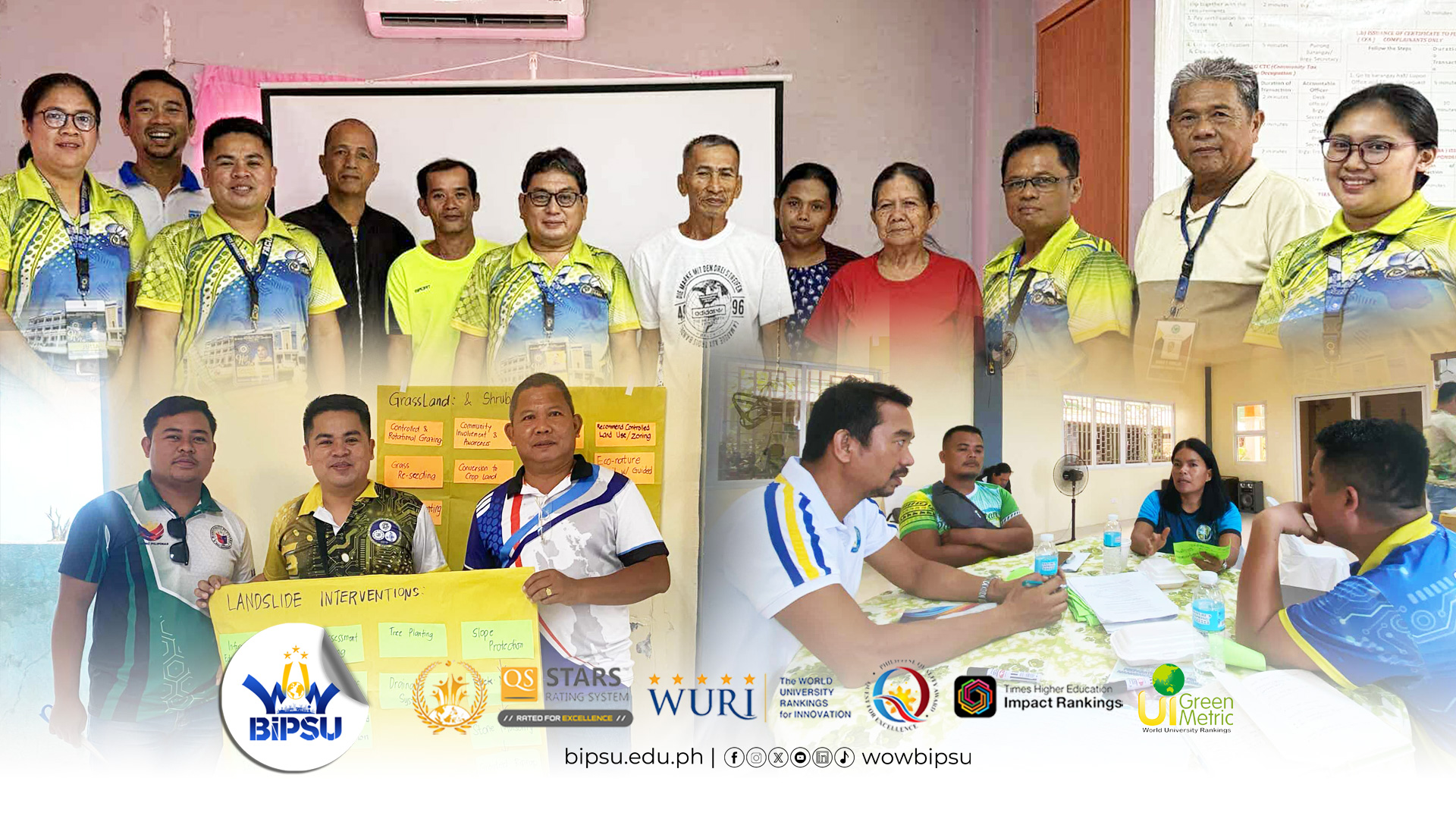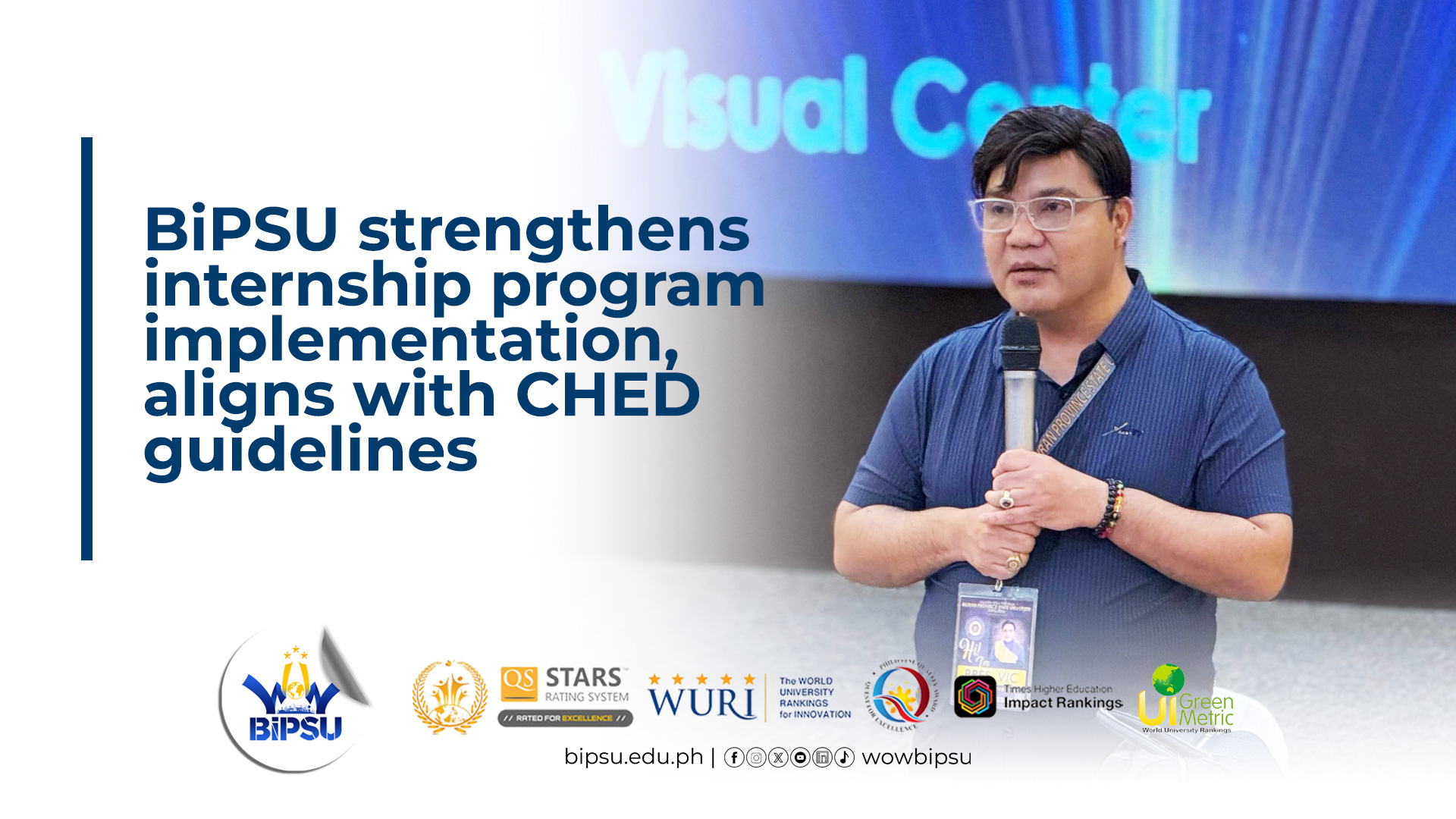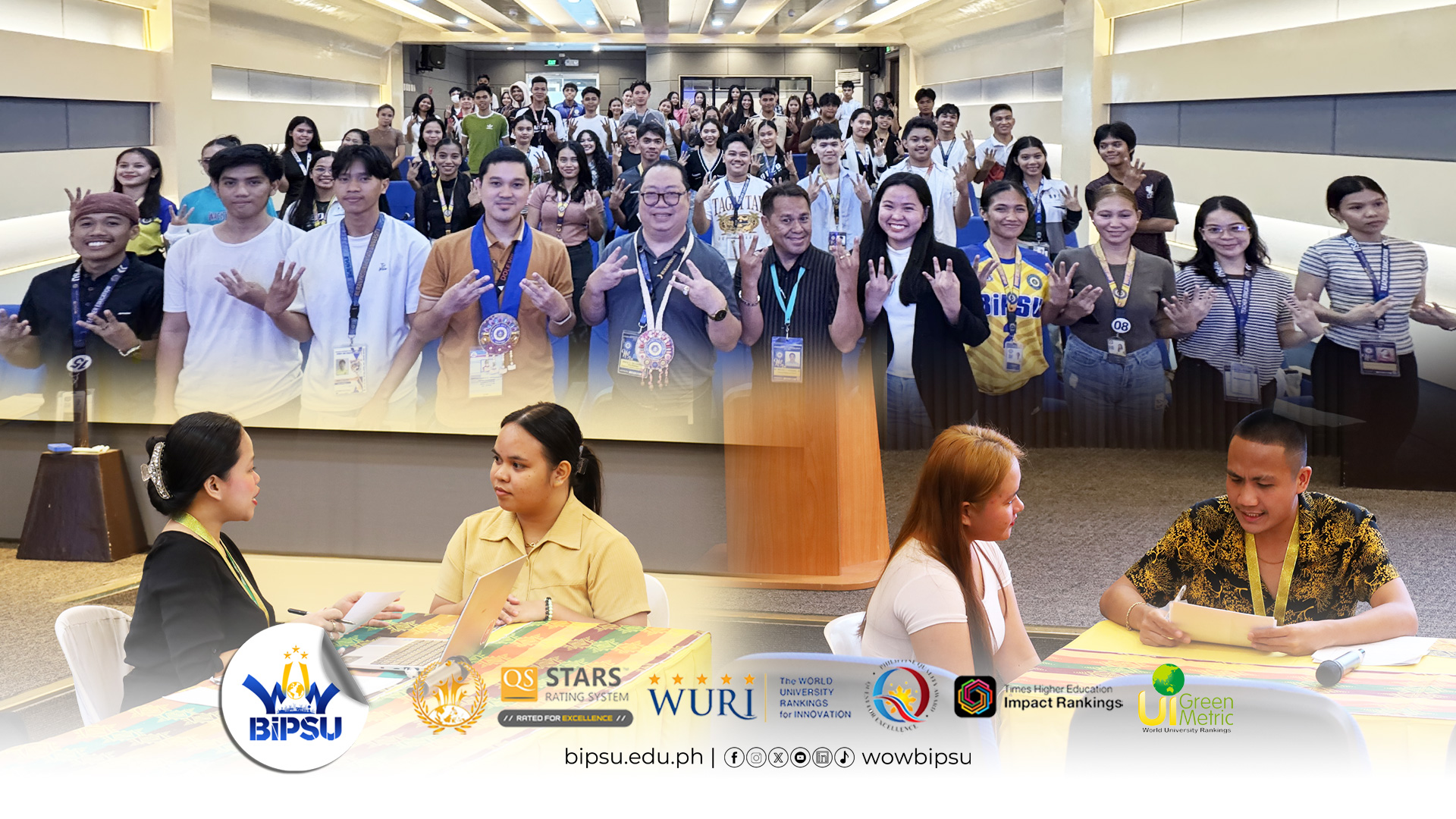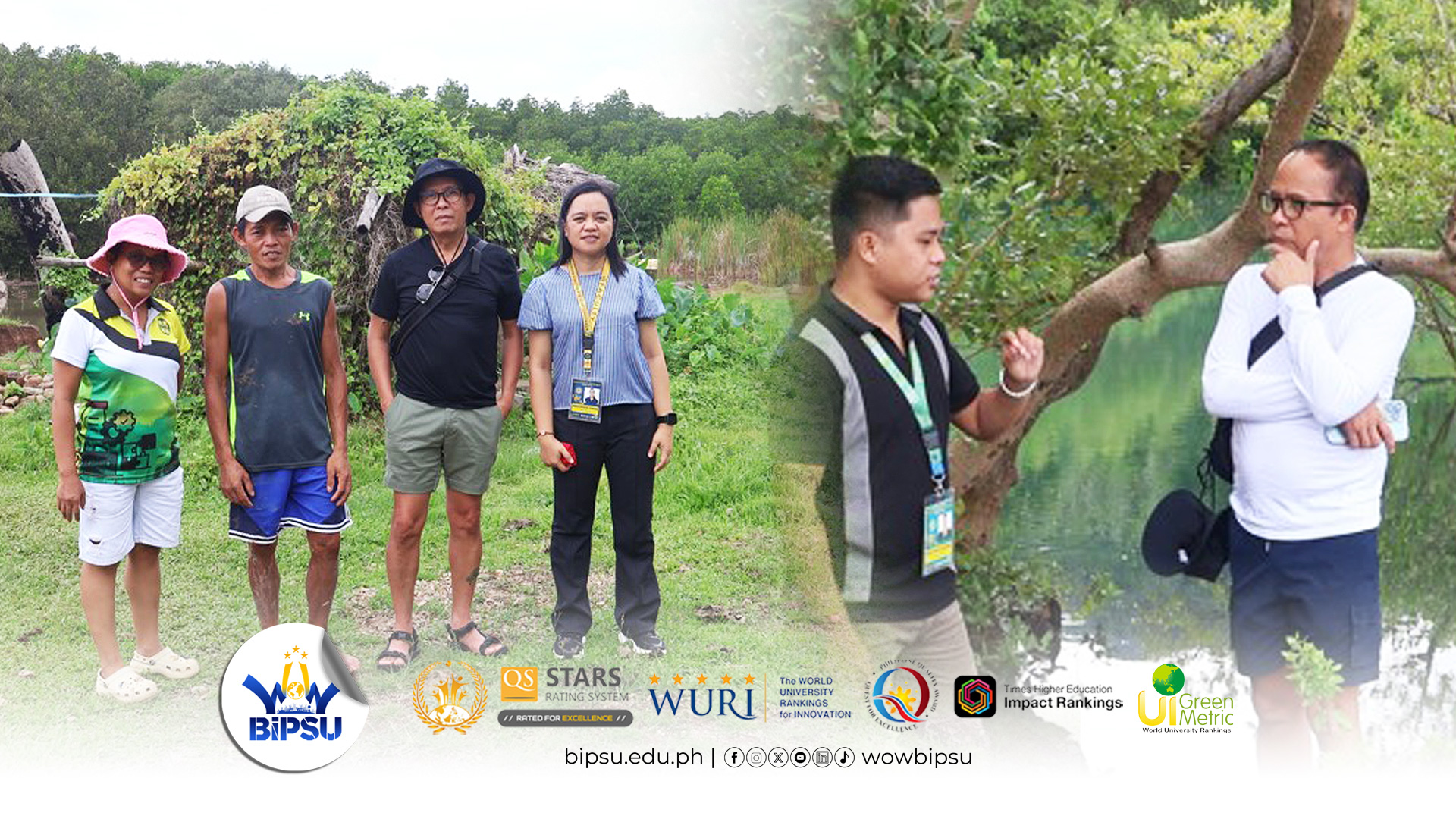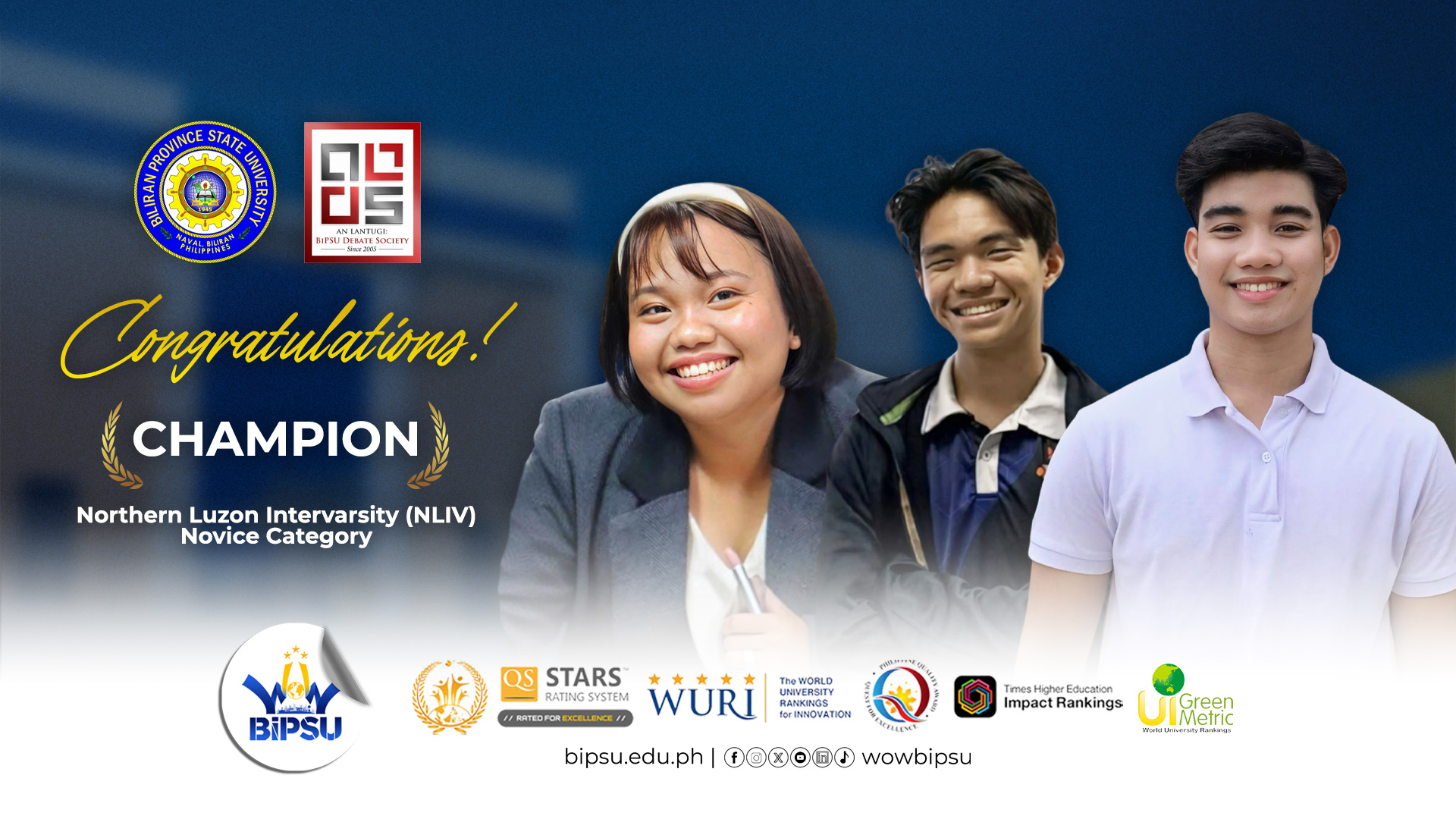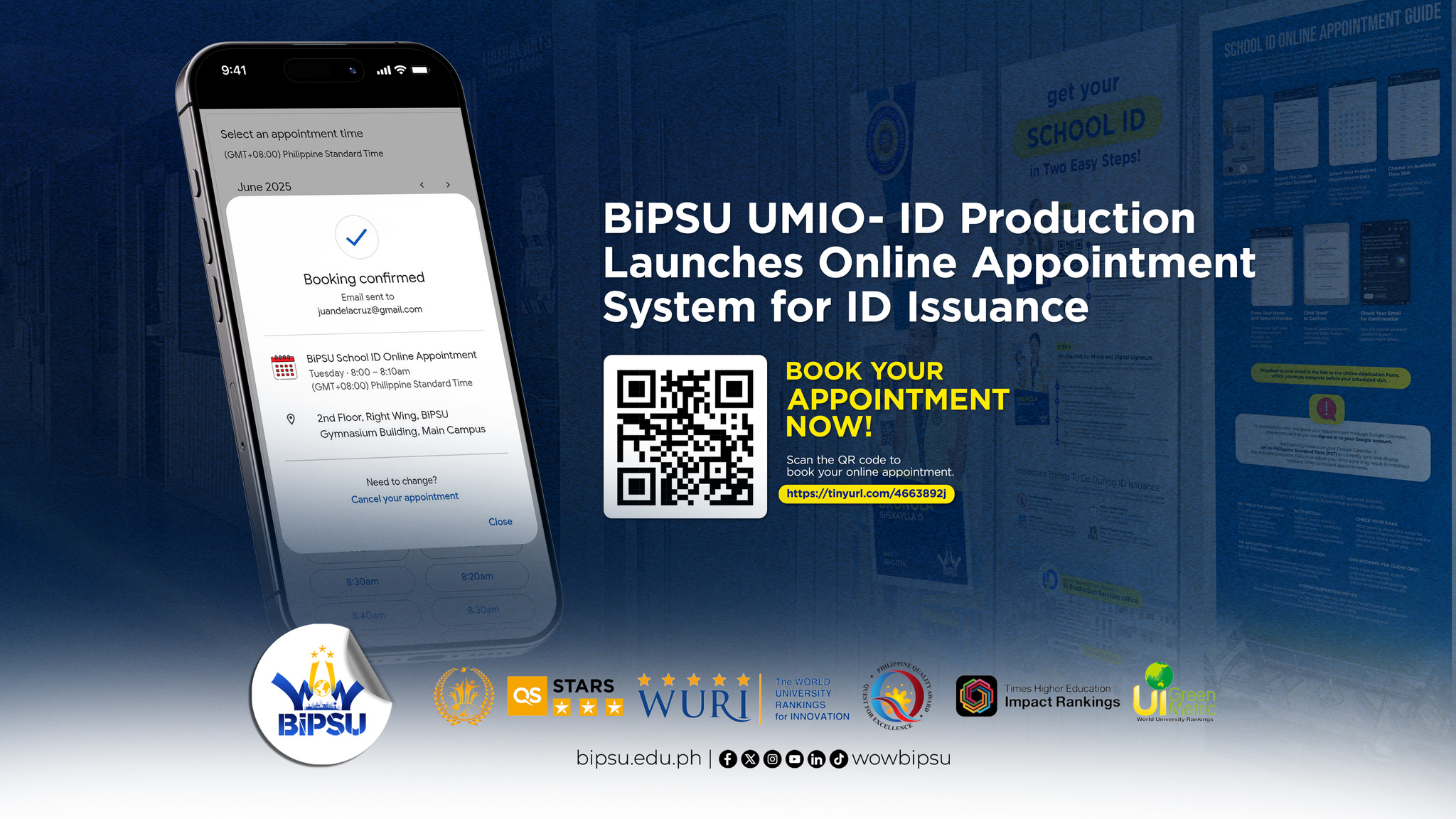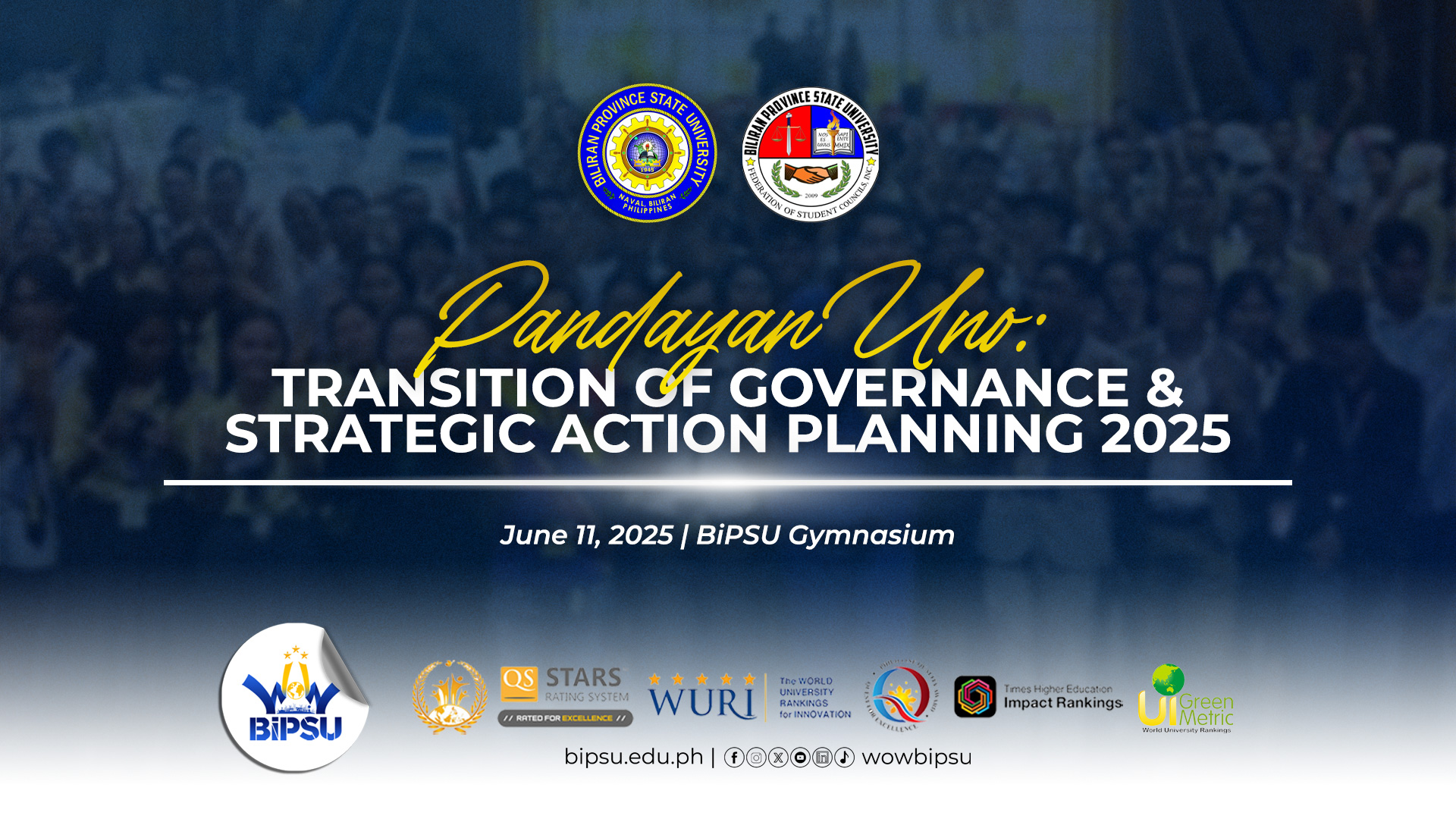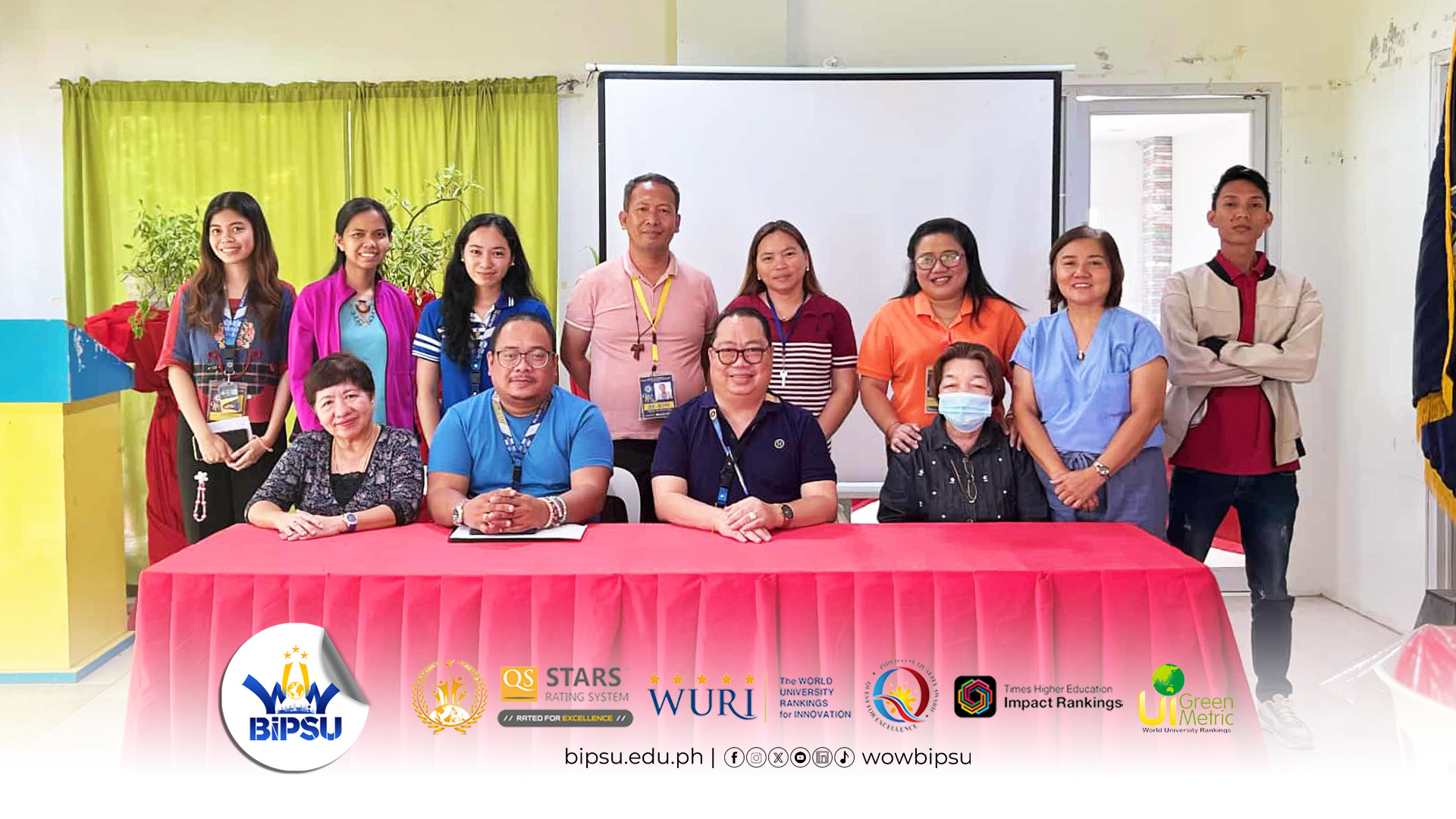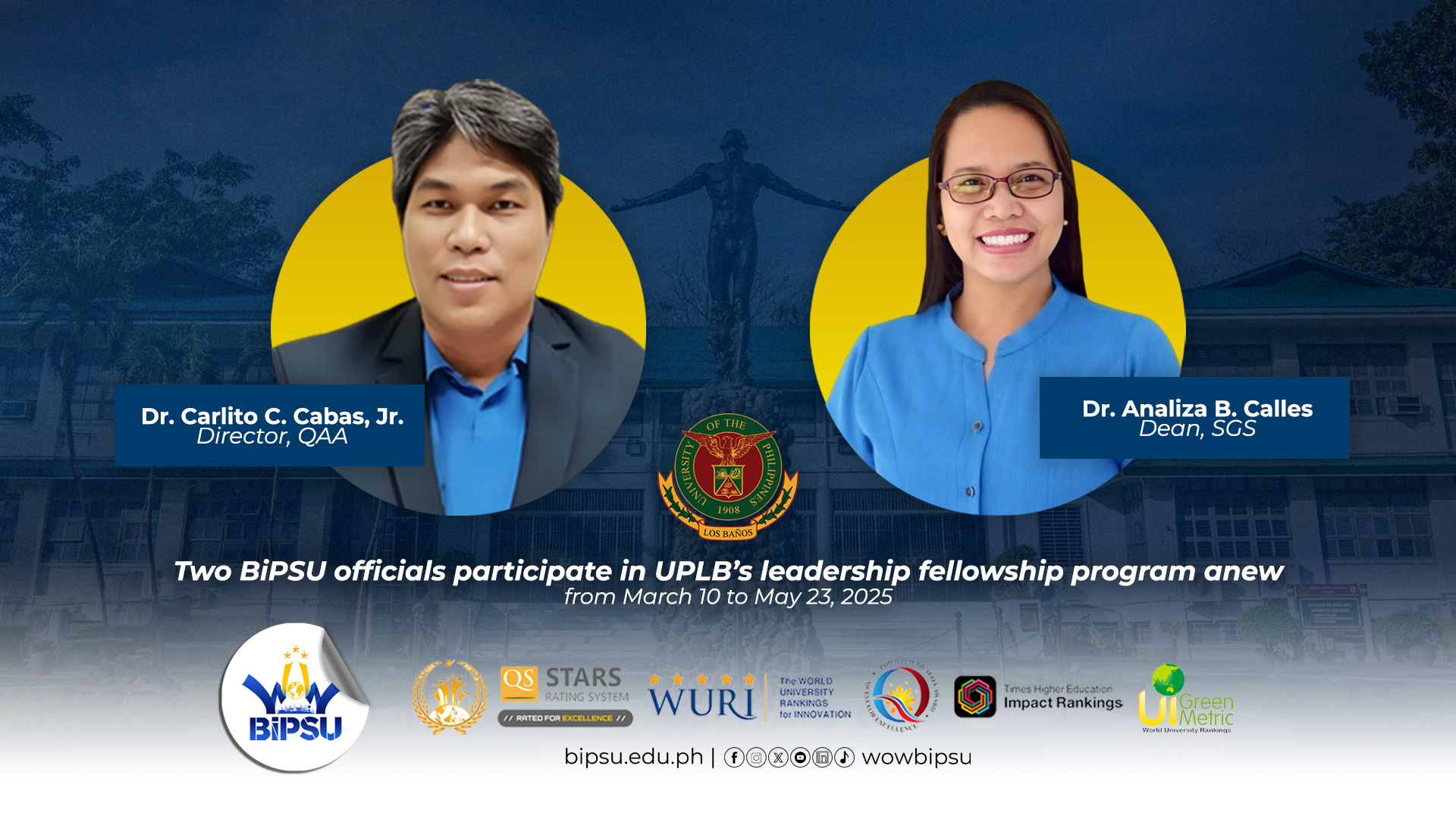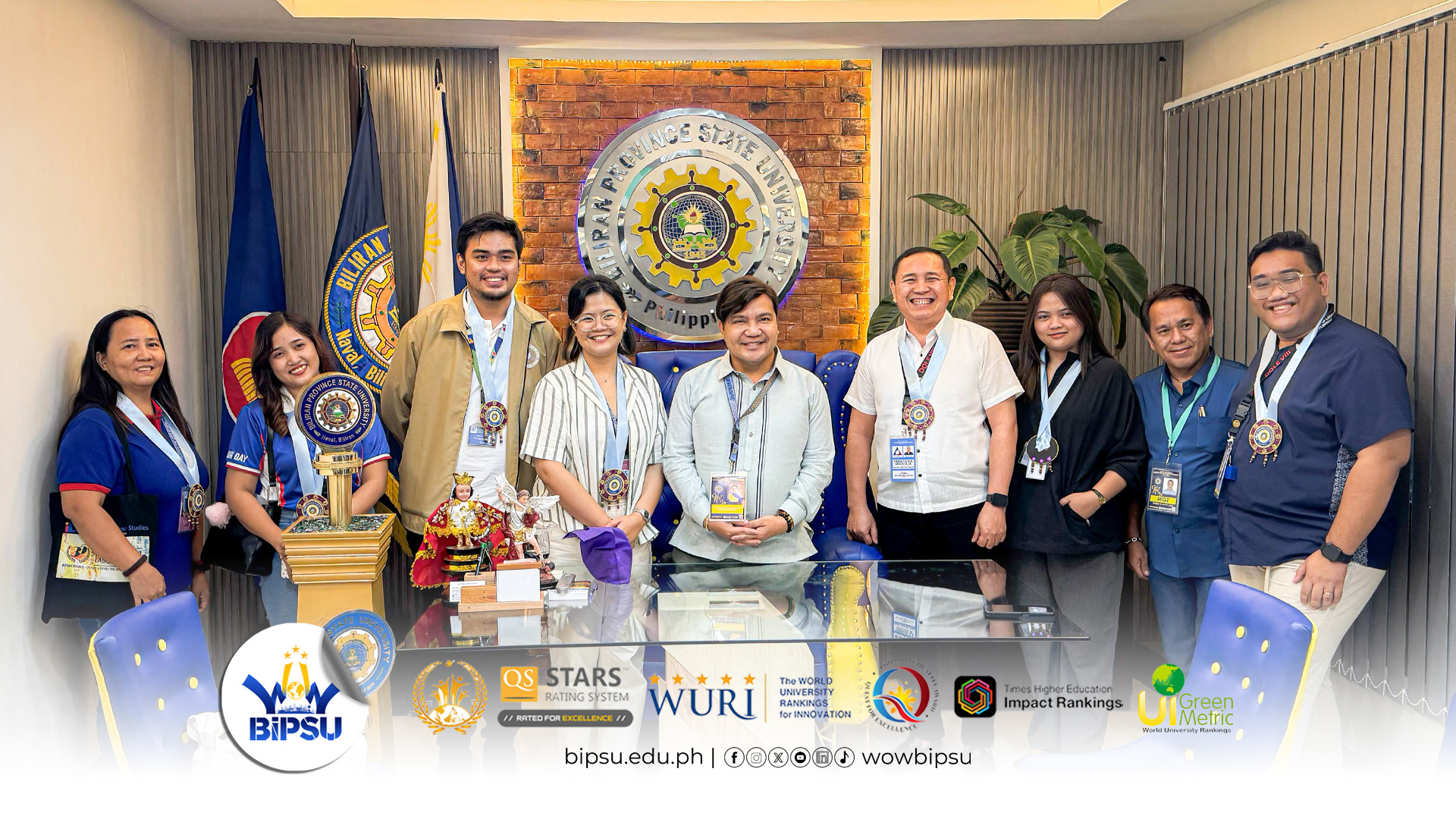- Written by Lorenzo R. de la Cruz, Rodelin Ponce; Photo by Mark Ronnie Mangco
- Read Time: 1 min
To strengthen its ongoing preparations for the 2025 International Conference on Methodological Advances in Research (ICMAR), Biliran Province State University (BiPSU), in collaboration with the Visayas–Mindanao Consortium for Journal Publications, Inc. (VMCJPI), held a key coordination meeting on June 13 at the Office of the President (OP) Convergence Room.
Set for September 16-19, the groundwork for the upcoming research conference brought together members of the working committees in a meeting led by University President Victor C. Cañezo, Jr. aimed to provide updates and implement key modifications to ensure the successful staging of the event.
Themed "Innovative Pathways: Advancing SDGs through Transformative Research Methods," the conference will collaborate with the VMCJPI to address global issues like climate change, poverty, inequality, and health crises.
This year’s presentation welcomes researchers on methodological advances in research under the following strands: social sustainability, inclusive development, sustainable economic development, and environmental sustainability.
Research on social sustainability will center on pressing global concerns such as no poverty, zero hunger, good health and well-being, and clean water and sanitation. Inclusive development papers will explore themes of quality education, gender equality, and reduced inequalities.
Meanwhile, sustainable economic development studies are expected to highlight areas such as affordable and clean energy; industry, innovation, and infrastructure; sustainable cities and communities; responsible consumption and production; decent work and economic growth; and peace, justice, and strong institutions. Whereas, research under the environmental sustainability strand should focus on climate action, life below water, and life on land.
In a statement, Dr. Cañezo remarked, "As we gear up for this activity in three months to come, I am pleased to share that preparations are now underway!" He added, "I look forward to welcoming scholars, researchers, and thought leaders as we explore methodologies that empower local and global communities and promote inclusive progress."
All interested participants are reminded of the important dates, which include the abstract submission deadline on July 28, notification of abstract acceptance from July 29 to August 3, and the deadline of full paper submission set on August 4.
In addition, manuscripts should be submitted by filling out this Google form: https://forms.gle/nYcbX2qhd9obxKpJA.
By fostering scholarly exchange and collaboration, the university continues to demonstrate its research culture that drives innovation, uplifts communities, and addresses the evolving challenges of sustainable development.
#WoWBiPSU
[This article aligns with Sustainable Development Goal No. 4: Quality Education, No. 9: Industry, Innovation, and Infrastructure, and No. 17: Partnerships for the Goals.]
